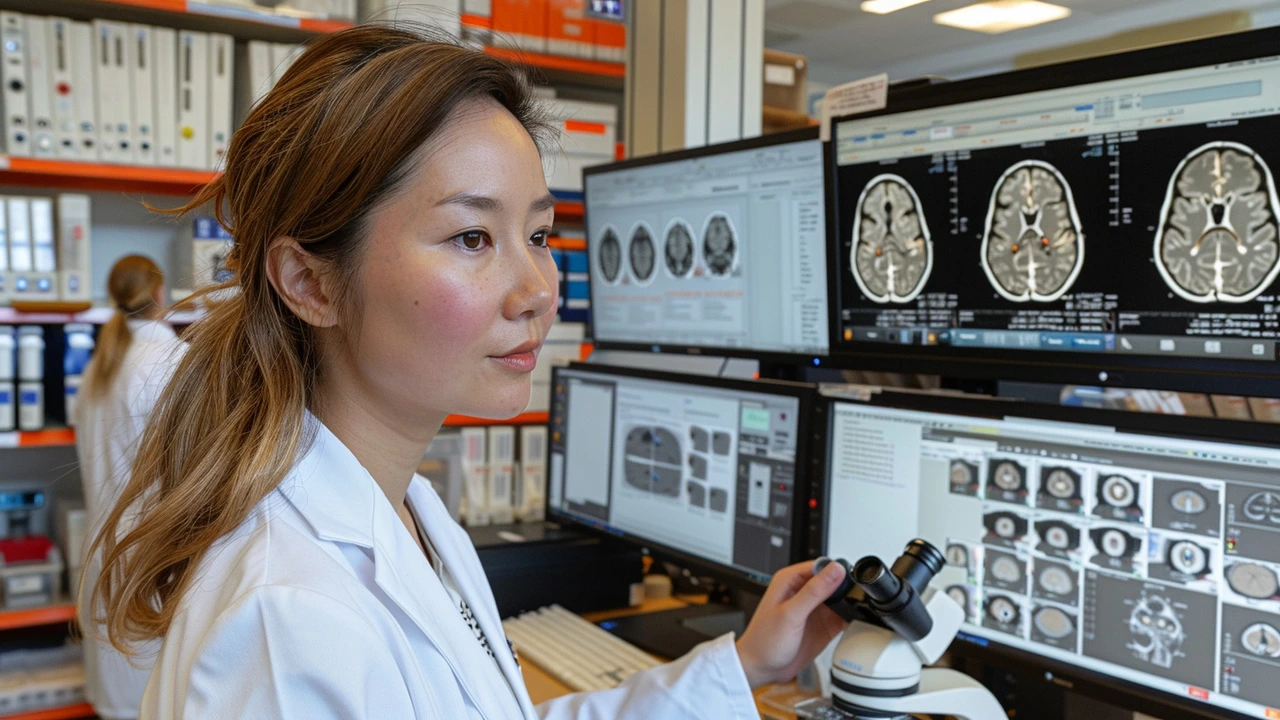If someone you love is forgetting names, losing track of time, or getting confused about simple tasks, Alzheimer's disease could be why. It's the most common form of dementia and slowly steals memory and thinking skills. The good news? Knowing the signs early and having a clear plan can make life easier for both the patient and their family.
Most people notice changes in memory first, but Alzheimer's shows up in other ways too. Look out for these red flags:
If you notice a few of these symptoms lasting more than six months, it’s time to see a doctor. Early diagnosis lets doctors start treatments that can slow the decline and gives families a chance to arrange support while the person still remembers who they are.
Once you have a diagnosis, the focus shifts to practical care. Here are some simple steps that work:
Medication can also play a role. Doctors often prescribe cholinesterase inhibitors (like donepezil) to boost brain chemicals and slow symptoms. Newer drugs target amyloid plaques, but they work best when started early. Always discuss benefits and side effects with your healthcare provider.
Family members should remember to take breaks too. Caring for someone with Alzheimer's can be draining, so schedule short respites, ask friends for help, or join an online forum where you can share experiences.
Lastly, don’t ignore lifestyle factors that influence risk. Regular physical activity, a Mediterranean‑style diet rich in fruits, vegetables, and healthy fats, and staying socially connected have all been linked to slower cognitive decline. Even small changes—like taking a daily walk or joining a book club—can add up.
Alzheimer's disease is tough, but you don’t have to face it alone. By spotting symptoms early, setting up routines, using the right medical tools, and leaning on community resources, you can keep quality of life as high as possible for everyone involved.

Inflammation’s role in Alzheimer's Disease is a topic of growing interest. This article explores the connection between chronic inflammation and cognitive decline, provides insights into possible causes, and discusses ways to manage inflammation to support brain health. Understanding inflammation's impact on Alzheimer’s could open doors to new treatments and prevention strategies.
In 2025, the landscape of hypothyroidism treatment offers a range of alternatives to Synthroid. These options cater to diverse patient needs, from synthetic solutions to natural remedies. This article delves into ten compelling alternatives, examining their benefits and drawbacks. With personalized medicine gaining momentum, understanding these options empowers patients to make informed choices in collaboration with their healthcare providers.
OTC sleep aids like diphenhydramine and melatonin offer minimal sleep benefits but carry serious risks including dementia, falls, and rebound insomnia. Learn safe limits and better alternatives.
A clear, side‑by‑side comparison of Requip (ropinirole) with other Parkinson's meds, covering efficacy, dosing, side‑effects, and how to choose the right option.
In my recent post, I discussed the relationship between Pyridostigmine Bromide and exercise for those living with Myasthenia Gravis. I explored how this medication can improve muscle strength, making physical activity more manageable for patients. However, I also highlighted the importance of balancing exercise with rest periods and working closely with healthcare providers to establish a suitable routine. Furthermore, it's crucial to listen to your body and not push too hard, as overexertion can lead to symptom flare-ups. Overall, while Pyridostigmine Bromide can aid in physical activity, careful management is key.
Cholinergic urticaria causes itchy heat-induced hives when your body warms up. Learn what triggers it, how to prevent flare-ups, and what treatments actually work based on current medical research.